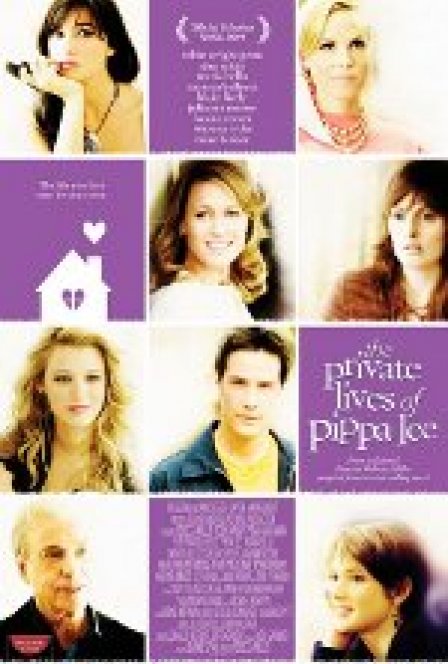“I have known Pippa Lee for 25 years,” proclaims Sam Shapiro (Mike Binder), “and I think that I will never really know her.” I shuddered at these early lines in The Private Lives of Pippa Lee, part of Sam’s toast to his friend Herb Lee (Alan Arkin), an octogenarian publisher, that becomes a tribute to Pippa (Robin Wright Penn), Herb’s decades-younger, seemingly beatific wife. I shuddered again at Pippa’s reply, via voiceover: “The truth is, I’ve had enough of being an enigma. I want to be known.” But, thankfully, the mawkish, predictable film that I feared would follow such blatant narrative signposting never emerges. Rebecca Miller’s Pippa Lee, adapted from her own 2008 novel, is the rare movie that actually improves on its source material.
That’s not to say Pippa Lee doesn’t stick to a well-worn arc: a woman of a certain age, feeling quietly stifled, grasps for a more freewheeling life. But if Miller’s outline feels familiar, her particulars are fresh. Pippa’s transformation, embodied beautifully by Wright Penn, begins when the seams in her marriage begin to rip, just after she and Herb move from New York to a Connecticut retirement community. To her shock, Pippa soon discovers that she’s picked up a sleepwalking habit so extreme she routinely drives while dozing; the revelation prompts her to reflect on her early life, portrayed through flashbacks. Miller fleshes out her heroine’s history in luxurious detail, showing us Pippa (played as a young adult by Gossip Girl’s Blake Lively) as the shell-shocked daughter of a speed-addicted mother (Maria Bello), the unwitting muse of a lascivious photographer (Julianne Moore), and finally the aimless party girl smitten with the kindly Herb (still Arkin, donning a hilariously unconvincing wig for his scenes with Lively).
A lesser director might have plumbed this journey of self-discovery for melodrama (see: The Hours), but Miller wisely pitches Pippa’s crises for laughs rather than tears. And Wright Penn’s performance is disarmingly sprightly, tempering the more outlandish characters in Pippa’s orbit. Upon discovering a friend (Winona Ryder) threatening to off herself in a fit of hysteria, Pippa remarks wryly, “Killing yourself with a disposable razor. I don’t think anyone’s ever done that before.” Even when Miller gives in to a few conventional twists (Pippa finds the breakthrough she’s been seeking through an affair with her neighbor’s hunky son (Keanu Reeves)), Wright Penn’s genuine resilience undercuts the sentimentality.
Pippa Lee’s episodic structure lends itself to a parade of familiar actors in offbeat roles, and with the exception of Moore, whose casting feels gimmicky, the eclectic ensemble clicks. Bello and Ryder are especially striking in their supporting parts; even the ever-Zen Reeves offers a convincingly soothing foil for the emotional Pippa. Lively, while charismatic, can’t quite transcend the preciousness of the film’s middle passage, which sees the ingénue battling it out with Monica Bellucci for the avuncular Arkin. But Lively’s steeper challenge might simply be the inevitable comparisons she faces with Wright Penn. It’s no contest – the long-underrated screen veteran here finally gets a chance to show that she’s peerless.

